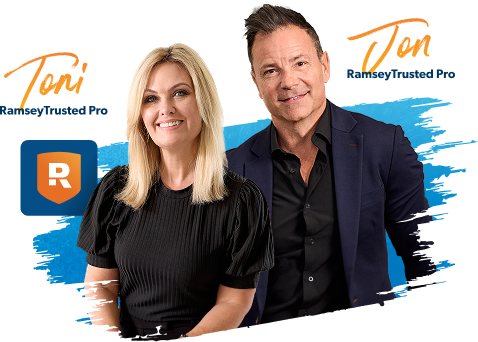How to Make an Offer on a House
9 Min Read | Mar 20, 2025

Finding the right house for you can take a few weeks or a few months. But what happens when you do set your sights on the house of your dreams? How and when do you make an offer?
And what should you do to boost your chances with the seller—especially in a competitive housing market?
Don’t worry: With a few tips, you can ace your home offer. We’ve got all the answers for you below!
How Do You Make an Offer on a House?
So, you’ve just viewed a house and it looks like it could be the one. Now you’re ready to make an offer! This is when your real estate agent usually steps in to write an offer letter on your behalf and send it to the seller’s agent.
It’s important to have a good real estate agent on your team from the start of your home search because the offer letter can make or break your chances when it comes to getting the house you want. But a good agent will know their way around the whole process.
What’s the Process When Making an Offer?
Now, let’s break down exactly how the offer-making process works. Here are the steps:
-
First, you’ll view a house and decide you want to make an offer.
-
You’ll speak to your real estate agent and, together, you’ll decide what your offer will be.
-
Your agent will write an offer letter and send it to the agent representing the seller.
-
The seller will respond in one of three ways:
The seller accepts the offer.
Everyone is happy. Hooray! As soon as both sides sign the offer letter, you’re officially under contract and on your way to buying a house!
The seller makes a counteroffer.
You can either accept this counteroffer, go back with another offer of your own, or walk away.
The seller declines the offer.
You could then try to make a more appealing offer (if your budget allows) or move on to find another house.
The offer letter can make or break your chances when it comes to getting the house you want. But a good agent will know their way around the whole process.
What Should You Know Before Making an Offer?
In order to make the strongest offer possible, here are some key tips leading up to the actual offer:
-
Be as quick as you can when submitting your offer—especially if the house hasn’t been on the market long. Know what you’re looking for in advance and assume you’re not the only person looking at the house—because you probably aren’t. You want to beat other buyers to the punch!
-
Think about seller motivation. Can your agent find out why they’re selling? This could help your case. For example, if they’re moving out of town and need to make a quick sale, your offer letter could state that you’re happy to have a shorter period before closing day.
-
If the house has been on the market for a while, find out the reason. If the house has issues, this could influence your offer.
Buy or Sell Your Home This Spring With Confidence
Now is a great time to buy or sell your home. Get ahead of the competition with help from a pro who’ll fight for you to get the best deal.
-
Has the seller received any other offers on the house? Getting this information depends on how much the seller’s agent is willing to tell your agent, but it’s always worth a try.
-
Your agent will also look at the local housing market and the condition of the house to decide what your offer price should be. Will you need to renovate? That could be a factor.
-
If you’re selling your current home while you’re looking for a new one, put your house on the market before you start your new home search. You don’t want to find your dream house and have the purchase fall through because you don’t have a buyer for your current house lined up in time. It may be wise to initiate the buying process, but be sure you don’t purchase a new house until you sell the other one. A good real estate agent can help you navigate the buying and selling process here.
Remember: Your offer should be a strong starting point. Don’t start too low or too high. You could get into a bidding war with other buyers or the seller could make a counteroffer. Your first offer should leave room to negotiate if necessary.
What Is Inside an Offer Letter?
This isn’t a typical letter, folks. The offer letter is a legally binding document that needs to comply with the laws of your state. That’s another good reason to have a real estate agent take care of it! In some states like New York, you’re required to have a licensed attorney approve the offer letter whether or not you’re working with an agent.
The offer letter is a legally binding document that needs to comply with the laws of your state. That’s another good reason to have a real estate agent take care of it!
And the offer letter doesn’t just contain the price you’re offering. It can also include other important information such as:
-
The amount of earnest money you’ll pay (usually between 1% and 3% of the sale price of the house)
-
Your down payment amount
-
Whether or not you’ve been preapproved for a mortgage
-
A breakdown of the closing costs and who is responsible for paying each one
-
If you’re selling your current home, details of the contract and closing date
-
Your offer’s expiration date
-
For a personal touch: A handwritten note from the buyer to help you stand out in a competitive market
What Are Contingencies?
Contingencies are conditions in the offer letter that the seller should agree to if they accept your offer and want the deal to proceed.
Find expert agents to help you buy your home.
You and your agent can decide what to address. Standard contingencies include making the house available for a home inspection and disclosing any hazard inspection findings or structural issues with the house.
It’s also common for the seller to agree for their home to be appraised by the buyer’s mortgage lender. It’s usually necessary to have a few contingencies, but you don’t want too many.
How to Negotiate a Home Price
Negotiating with the seller is always worth trying, even in a hot housing market. Don’t be afraid to offer lower than the asking price and negotiate up! As mentioned earlier, plan for your first offer to have a little wiggle room.
Other than straight-up negotiating the amount, here are some other ways to negotiate the overall price:
-
As mentioned, being light on contingencies in your offer letter is more appealing to the seller. There’s room for negotiation. For example, you could agree to a closing date that suits the seller if they’re looking for a quick sale.
-
If it’s a competitive market and the seller wants to know you’re serious about the house, they could ask for more earnest money in their counteroffer but agree to the price you’re offering for the house.
-
One common negotiation tactic is to ask the seller to waive or pay for certain closing costs.
-
If you’re paying in cash, a strong cash offer can be a good bargaining chip when placed against other offers that are more precarious or have more contingencies—even if they are slightly higher.
Don’t worry: A good real estate agent will be able to guide you in the right direction on these!
Being light on contingencies in your offer letter is more appealing to the seller.
Making Negotiations After an Offer Has Been Accepted
Keep in mind that negotiations don’t have to end once you’ve agreed on the purchase price. Let’s say the home inspection reveals a few minor issues the seller should fix before closing the deal.
But maybe the seller has no time to make repairs because they’re moving out of state and has too much going on. At this point, you could ask for something in exchange for taking care of the repairs yourself—like credit from the seller or an appliance to be included in the deal.
And what if the appraisal from your mortgage lender comes back with a value that’s less than the agreed-upon sale price? The seller will have to agree to match the appraisal value or the whole deal could fall through. It’s not final until the sale is final!
Want More Expert Real Estate Advice?
Sign up for our newsletter! It’s packed with practical tips to help you tackle the housing market and buy or sell your home with confidence—delivered straight to your inbox twice a month!
What to Do in a Bid Situation
Unfortunately, if your dream home is also other buyers’ dream home, you could find yourself in a bid situation. This is when the seller receives more than one offer at the same time.
Here’s what could happen:
-
The seller could ask the buyers with the highest offers to come back with their best possible offers by a set deadline. The seller will look them over and come to a decision.
-
The buyers with the highest offers will compete in a bidding war to see who is willing to make the most appealing offer on the house. This could be the highest offer, but it could also one be the one that’s lightest on contingencies.
The good news is that there are a few things you can do to let the seller know you’re willing to beat the competition. Here are some things you can try:
-
Offer to top the highest bid by $1,000 up to a certain amount. This way, you run less chance of being outbid by anyone.
-
Pay for the house in cash. This reduces closing costs and brings closing day faster—which is probably in the seller’s best interest if they’re trying to buy another home at the same time.
-
Increase the amount of your down payment and/or the earnest money percentage.
-
Remind the seller why you love their home. If you sent a handwritten letter, point back to that! People like to think their cherished home is going to be loved and cherished by the next seller.
-
If you’ve been preapproved for a mortgage, mention it again. That way, the seller knows there’s less of a chance that your financing could fall through at the last minute.
Tip: Resist the urge to contact the seller yourself. They’re probably under a lot of stress and you might make things worse. It’s wise to let your agent present your case to their agent.
Make Your Offer Count With a Real Estate Expert
It’s important to have the best agent on your team when you’re buying a house. From searching for the best home to putting in that offer, a good agent will be able to scan the market, look at the house in detail, and work with you to present your strongest offer.
If you’re in the market for a trusted agent with expertise when it comes to real estate, check out our RamseyTrusted® program.
Did you find this article helpful? Share it!

We Hear You!
We’re considering adding the ability to save articles to your Ramsey account.




